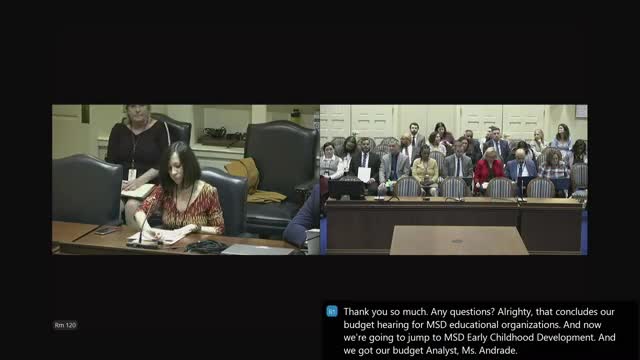Article not found
This article is no longer available. But don't worry—we've gathered other articles that discuss the same topic.
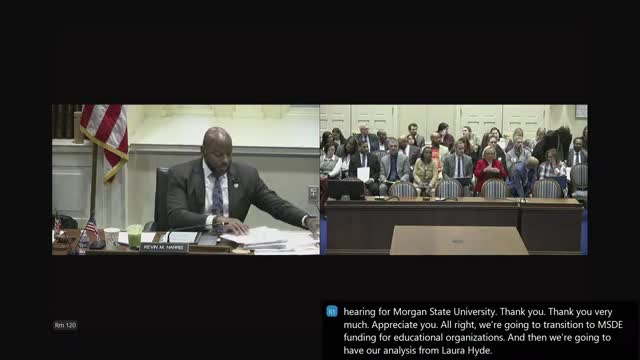
Panel weighs future of Boost scholarship, special‑education awards and health‑and‑security grants
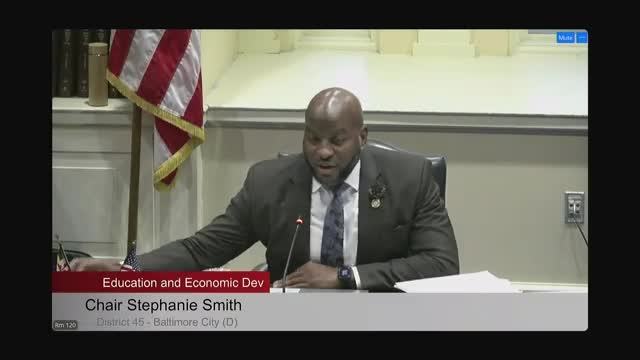
Morgan State president defends enrollment gains as analysts flag falling graduation and overdue reports
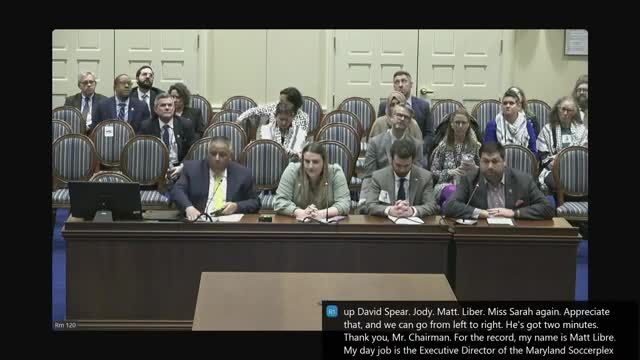
Public testimony split over Maryland Israel Development Center grant; supporters cite jobs, critics cite military ties
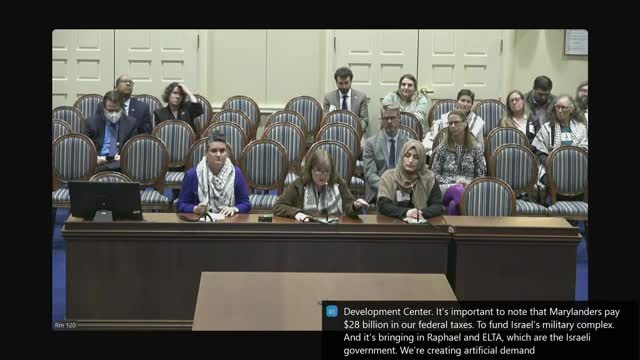
Commerce seeks full funding for attraction tools; DLS flags possible reductions and oversight items
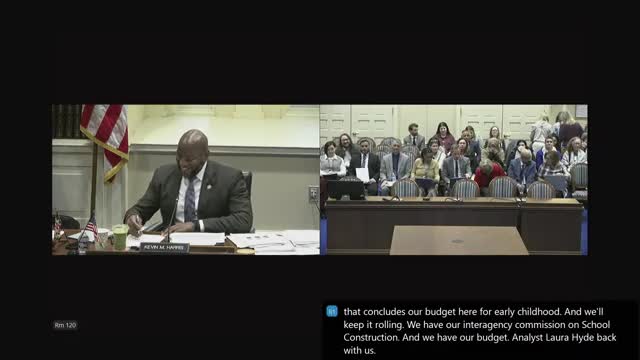
Interagency Commission on School Construction: DLS flags overdue mandated reports as IAC expands role
